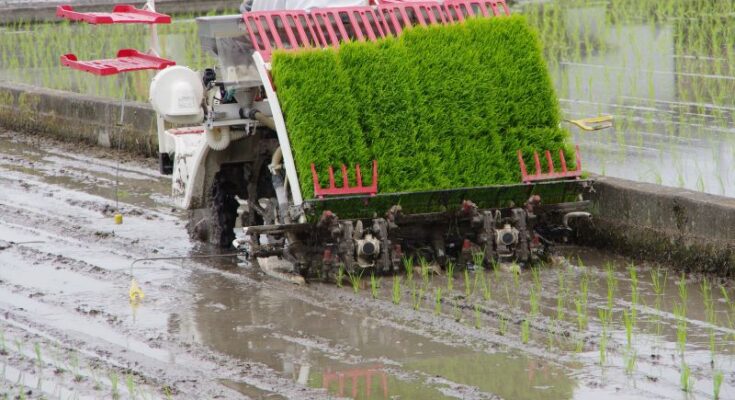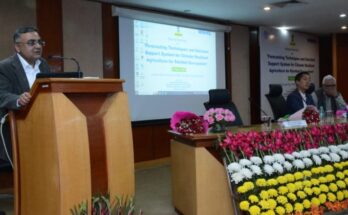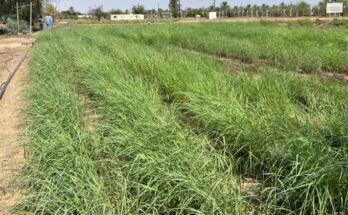Union Budget 2022 aims to introduce both structural and process reforms and gives a direction to the Indian agriculture sector with the focus on innovations, investments and incentives. While welcoming the provisions as positive and growth-oriented, leaders of the sectors also highlight pain points.
The Budget presented against a backdrop of a strong rebound of the economy has set the foundation for taking agriculture on a sustained higher growth trajectory during the ‘Amrit Kal’ towards India @100, said Dr KC Ravi, Chief Sustainability Officer, Syngenta India.

“The implementation of Ken-Betwa link worth Rs 44,605 crore covering 9 lakh hectares addresses the critical need of augmenting irrigation capability. The higher allocation on agriculture would hopefully result in many PPP opportunities for deployment of scale neutral latest technologies. Given the serious challenge it poses to the environment, I am happy to see a specific mention of the provision of technology and funds to farmers for the reduction of crop burning. Implementation of the measures announced would be key,” added KC Ravi.
The agriculture sector has proven its resilience from external shocks like the Covid-19 pandemic, with growth at 3.9 per cent in FY2021-22, an increase from 3.6 per cent last year. The budget’s focus to increase funds and technological intervention in agriculture value chains will further help cushion the sector against global uncertainties. Higher allocations and support announced would enable the growth of the rural economy and the export potential of agri commodities.
You may also like to read: Budget 2022 prioritises agritech; Experts dub ‘Drone Shakti’ a game-changer

Rajesh Aggarwal, Managing Director, Insecticides India said, “This year’s budget has a special emphasis on encouraging the use of Kisan Drones for crop assessment, digitisation of land data, and insecticide and nutrient spraying. This will undoubtedly provide a boost to the agriculture industry and the input industry as well. Spray by drones will help save on water and will increase the uniformity and efficacy of crop protection and nutrition products.”
Tax incentives for agribusiness startups will benefit the overall agriculture sector. The government has also announced that money will be made available through NABARD to finance agricultural and rural enterprise startups relevant to the farm product value chain. All of these actions will tremendously benefit farmers.

Reacting to the provisions for the agriculture sector, Jinesh Shah, Managing Partner, Omnivore said, “The Union Budget 2022-23 is steering the country into a greener future. Acknowledging the impact of global warming, the rising cost of cultivation and concerns around human and planetary health, sustainable agriculture has been pushed to the centre stage. It is an important step towards climate-proofing Indian agriculture and securing the livelihoods of millions of smallholders in the country. A blended capital fund under NABARD is also interesting as it can provide the FPOs with much-needed assistance.”
Highlighting the misses, Ram Kaundinya, Director General, Federation of Seed Industry of India (FSII) said that the Budget did not spell out any specific initiative for the agricultural biotechnology sector, however, it had a few things for the agri sector—especially the thrust on millets and increasing the domestic production of oilseeds.

“There is no announcement to boost research in breeding and biotechnology were made in the Budget. For instance, it would have been in the fitness of things if the government had said that modern science and biotech would be used to boost oilseeds production in the country. Also, some incentives for crop diversification from rice and wheat to oilseeds would have been very appropriate. Our industry sought restoration of tax-deductibility of research expenditure but looks like it has not been approved,” added Kaundinya.

Describing it as a balanced budget, Balram Yadav, Managing Director, Godrej Agrovet said, “It is focused on infrastructure boost, supporting agriculture sector with incentives and technological fillip. River interlinking projects, the Ken-Betwa link will improve farming and livelihood facilities for farmers and the local population. The decision to revise syllabi of agricultural universities and use of Kisan Drones for crop assessment, digitisation of land records, spraying of pesticides is a step in the right direction to modernise the agriculture sector.”
You may also like to read; Budget 2022: Digitisation of agri ecosystem needs to be effectively implemented

Allied sector- dairy has also welcomed the Budget. Meenesh Shah, Chairman, National Dairy Development Board (NDDB) said, “We welcome reduction in alternate minimum tax for cooperatives from 18.5 per cent to 15 per cent and surcharge from 12 per cent to 7 per cent for cooperatives having income Rs 1 to 10 crore. The decision will boost development initiatives of dairy cooperatives and ensure better remuneration to millions of farmers.”

The livestock and animal husbandry sector contributes 4.11 per cent to GDP and 25.6 per cent to total agriculture GDP, yet there was inadequate attention presented to the sector in the Union Budget 2022. Amit Saraogi, Managing Director, Anmol Feeds said, “ Duty reduction on certain inputs required for shrimp aquaculture to promote its exports is a welcome move as it will further boost entrepreneurial mindset and help in job creation. Lowering the production cost of shrimp hatchery and feed will promote growth in the sector. The fisheries and aquaculture sector has tremendous potential to generate livelihood and incomes. However, marine and dairy products were left untouched by the budget. Like announcements made for wheat and paddy farmers, MSP was needed to be fixed for the poultry sector as well.”
The industry also expected a viable solution towards controlling the ever spiralling of the raw material prices as it has been plaguing the already overburdened industry. The budget for Blue Revolution has not been outlaid.
You may also like to read; Budget 2022: All things you need to know about budget provisions for agriculture sector

SK Chaudhary, Founder Director at Safex Chemicals said, “The initiative to promote chemical-free natural farming throughout the country will help in strengthening the agriculture industry. Considering the financial aspects of things, 2022-23 would prove to be a highly crucial period for the agriculture industry. Farm procurement value for FY23 would be Rs 2.37 lakh crore. This would help agrochemical companies like us focus more on building reliability and march towards higher growth.”

The year 2022-23 has been announced as the International Year of Millets. Devroop Dhar, Co-founder and MD, Primus Partners said, “The support towards branding millet products nationally and internationally is a timely and welcome move. With the UN declaring 2023 as the year of millets and with the known health and nutritional benefits of millets, it is expected that the use of millets would go up tremendously. This is the right time to ensure India continues its leadership position as a producer of millets.”

Dr Suseelendra Desai, Dean, NMIMS School of Agricultural Sciences & Technology pointed out that the functional PM Gati Shakti with special investments in railways, multi-modal connectivity, 100,000 cargo terminals and digital tools like real-time logistic management will reduce 3-18 per cent perishable harvest losses, enhance profitability and livelihoods of small and marginal farmers.
“Formulation of the syllabus for natural and organic farming, value addition, modern-day digital agriculture tools will make the agricultural graduates up-to-date, enhance the area under organic agriculture from the present 43.4 lakh hectare with 35 lakh tonnes earning US$1040.95 million to new heights to cater to domestic as well as international markets,” added Desai.

Experts feel that the Union Budget 2022-23 has taken a growth-oriented approach for most of the sector. It has paid special attention to agriculture. According to DRE Reddy, CEO and Managing Partner, CRCL LLP, the encouragement to agricultural universities will create necessary awareness of organic farming, modern-day agriculture, and will enable to provide better career opportunities for the upcoming generation. The idea of the Kisan Drones for crop assessment, digitisation of land records, spraying of insecticides and nutrients will give inclusive development to farming.
India is to grow at 9.27 per cent in 2021-22, the highest among all large economies. A focus on chemical-free natural farming, soil health, and biodiversity is considered a progressive move. All major provisions aim at striking a balance between boosting rural demands and investing in agriculture.

The major initiative to introduce chemical-free natural farming is sure to create a better outlook on the quality of food and essentials related to farming and poultry. Nishanth Chandran, Founder & CEO, TENDERCUTS observed, “Provision of funds through NABARD for agriculture and rural enterprises, especially for the farm produce value chain, would help strengthen the poultry, meat, and seafood sectors.”
Overall, agriculture sector experts and leaders believe that the government’s dedicated focus to increasing investment in agriculture and the agritech sector will allow for all-inclusive development that will benefit farmers as well as agribusinesses.





